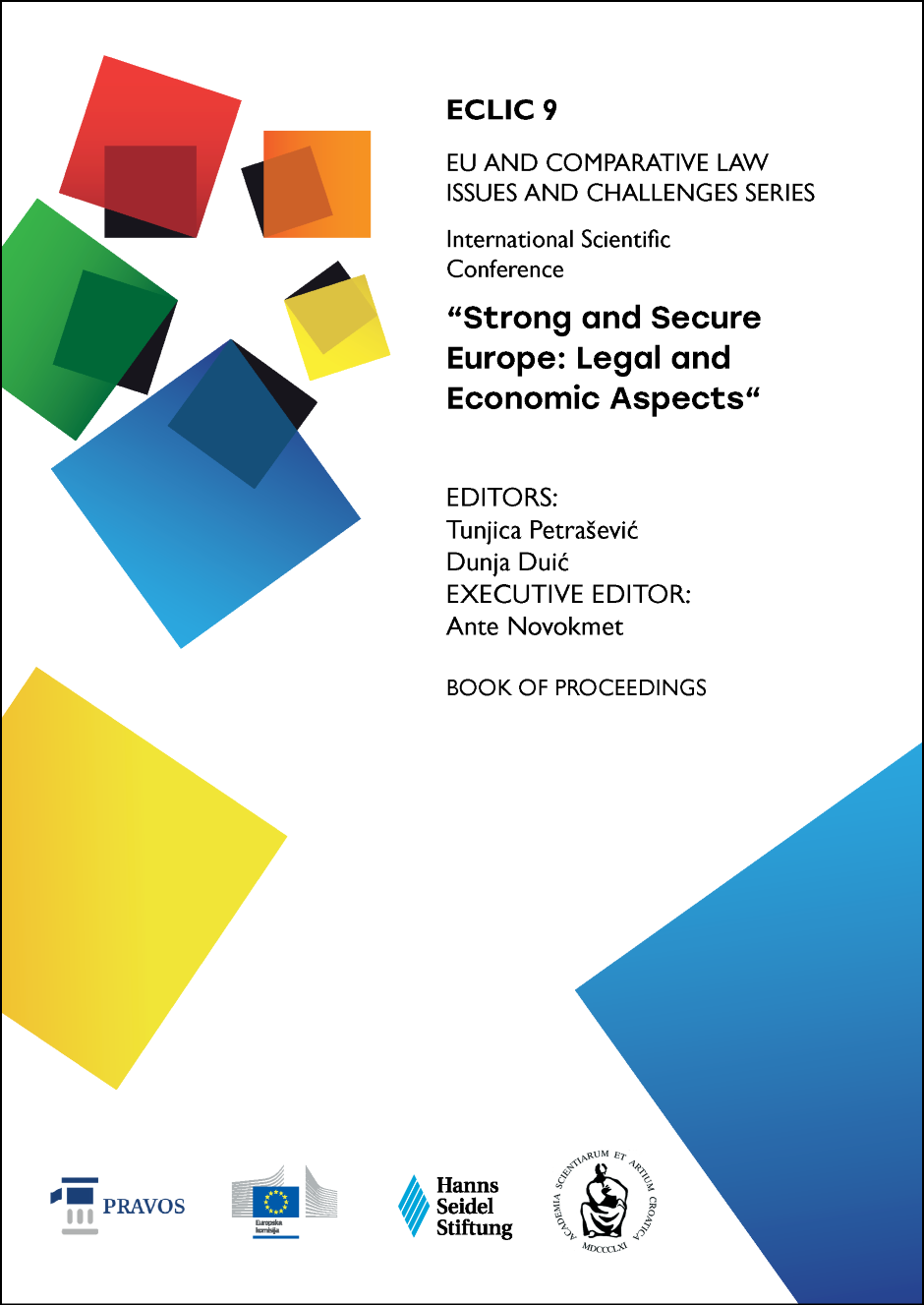CITY OF ZAGREB’S MODEL FOR MUNICIPAL WASTE COLLECTION
AN EXAMPLE OF BEST PRACTICE? (AN INTERDISCIPLINARY APPROACH)
DOI:
https://doi.org/10.25234/eclic/38142Abstract
The aim of the paper is to analyse the model of providing the public service of municipal waste collection on the territory of the City of Zagreb. The level of public service that must be provided in order for the municipal waste collection system to fulfil its purpose, be economically viable and ensure the safety, regularity and quality of the public service is extremely difficult to achieve. A particular problem is posed by apartment buildings, where the spatial conditions make it very difficult to organize a sensible billing system in which individual users are billed according to the amount of waste produced. The analysis assumes that a fair balance must be struck between the interests of the individual and the community whereby the municipality has a certain degree of discretion in determining waste management measures. From a legal perspective, the decision of the City of Zagreb must be assessed in the context in which it was taken and the objectives pursued. The current solutions seem to us to be largely acceptable. From an economic point of view, we believe that the imposition of a contractual penalty on service users who separate municipal waste in apartment buildings due to co-owners who do not do so is not made on objective and justified grounds. Therefore, the existing legal solution or justification in relation to the objective and effect of the measure under consideration is not considered in accordance with the principles common in democratic societies. The authors’ tendency is to highlight the complexity of the problem through an interdisciplinary approach, to initiate a dialog on the quality of housing, the relevant role of the state, regional and local government and citizens, and on appropriate implementation mechanisms.
Downloads
Published
Issue
Section
License
Copyright (c) 2025 Marko Tomljanović, Pavle Jakovac, Dejan Bodul

This work is licensed under a Creative Commons Attribution-NonCommercial 4.0 International License.
Authors retain the copyright on the papers published in the Journal, but grant the right of first publication to the Journal. Papers accepted for publication or already published in ECLIC of the Faculty of Law in Osijek may be published by the author(s) in other publications only with proper notice of its previous publication in ECLIC.


